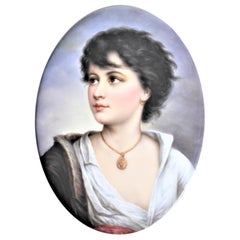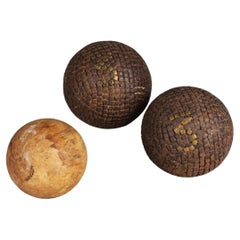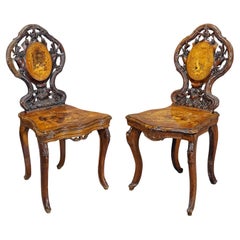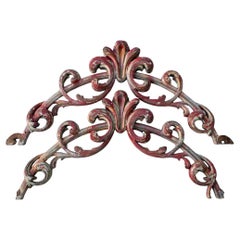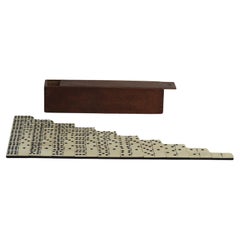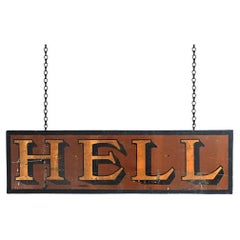Folk Art
Late 19th Century Austrian Victorian Antique Folk Art
Porcelain
Late 19th Century French Late Victorian Antique Folk Art
Olive
Early 20th Century German Victorian Folk Art
Leather, Wood
1920s British Late Victorian Vintage Folk Art
Pine
Late 19th Century English Late Victorian Antique Folk Art
Bone, Wood
1920s British Victorian Vintage Folk Art
Pine
Early 20th Century German Victorian Folk Art
Iron
Early 20th Century German Early Victorian Folk Art
Wood
1880s French Early Victorian Antique Folk Art
Wrought Iron
Early 20th Century German Victorian Folk Art
Wood
19th Century American Victorian Antique Folk Art
Wood, Pine
Early 20th Century German Victorian Folk Art
Leather, Wood
1910s French Victorian Vintage Folk Art
Zinc
1890s American Victorian Antique Folk Art
Iron
19th Century Early Victorian Antique Folk Art
Bronze, Iron
Late 19th Century English Late Victorian Antique Folk Art
Pine
Early 20th Century German Victorian Folk Art
Terracotta
Late 19th Century French Late Victorian Antique Folk Art
Olive
Early 20th Century German Victorian Folk Art
Wood, Paper
Late 19th Century Expressionist Antique Folk Art
Mid-19th Century English Early Victorian Antique Folk Art
Stoneware
Early 20th Century European Expressionist Folk Art
Brass
Late 19th Century Portuguese Victorian Antique Folk Art
Earthenware
20th Century English Victorian Folk Art
Paint
Mid-20th Century German Victorian Folk Art
Canvas, Wood
Late 19th Century French Late Victorian Antique Folk Art
Sterling Silver
Early 20th Century Swiss Victorian Folk Art
Wood
1880s British Early Victorian Antique Folk Art
Bone
Early 1900s British Early Victorian Antique Folk Art
Natural Fiber
1890s British Victorian Antique Folk Art
Leather, Pine, Paint
Late 19th Century English Victorian Antique Folk Art
Stoneware
Mid-19th Century American Early Victorian Antique Folk Art
Paper
Early 1900s Hungarian Vienna Secession Antique Folk Art
Metal
Mid-19th Century English Victorian Antique Folk Art
Metal
1920s Early Victorian Vintage Folk Art
Metal
Late 19th Century French Late Victorian Antique Folk Art
Metal
Early 20th Century Victorian Folk Art
Other
Early 20th Century Victorian Folk Art
Other
1880s German Victorian Antique Folk Art
Pine, Paint
Late 19th Century English Victorian Antique Folk Art
Paint
Early 1900s French Victorian Antique Folk Art
Zinc
1850s English Victorian Antique Folk Art
Brass
Early 20th Century German Victorian Folk Art
Terracotta
1950s Italian Expressionist Vintage Folk Art
Glass, Wood, Paper
20th Century English Victorian Folk Art
Paint
Late 20th Century American Expressionist Folk Art
Enamel
Late 19th Century French Late Victorian Antique Folk Art
Metal, Brass
Mid-20th Century German Victorian Folk Art
Porcelain
19th Century French Victorian Antique Folk Art
Iron
Early 20th Century Victorian Folk Art
Other
Late 19th Century French Late Victorian Antique Folk Art
Olive
Late 19th Century French Late Victorian Antique Folk Art
Olive
Late 19th Century French Victorian Antique Folk Art
Beech
1850s Indian Early Victorian Antique Folk Art
Terracotta
20th Century American Expressionist Folk Art
Paper
20th Century American Victorian Folk Art
Shell, Wood
Late 20th Century Expressionist Folk Art
Paper
Early 20th Century German Victorian Folk Art
Wood, Leather
Vintage, New and Antique Folk Art
Folk art refers to a genre of art that shares the creator’s traditions, offering not just an artistic display but an opportunity to learn about a culture. Vintage, new and antique folk art typically reflects a heritage or location. It can include utilitarian objects and handmade art as diverse as weather vanes, portraiture and paintings, carnival art, quilts and duck decoys.
American folk art is frequently valued because of the traditional skills involved, like weaving, hand-carving wood and even stonework. Many folk artists are self-taught, while some train as apprentices within their community. By using available materials and taking a personal approach to their creations, artists ensure each piece is unique and conveys a story. Native American folk art includes functional objects reflecting their heritage, such as baskets, textiles and wooden pieces.
During the Great Depression, artistic materials in America were hard to come by, so artisans used discarded wood from cigar boxes and shipping crates to make highly stylized, notched pieces — most often picture frames and boxes — that are today sought after by collectors. This folk art style is called tramp art and was popular from roughly 1870 until the 1940s.
Folk art brings vibrant culture and traditions into your home. Browse an extensive collection of folk art on 1stDibs.
